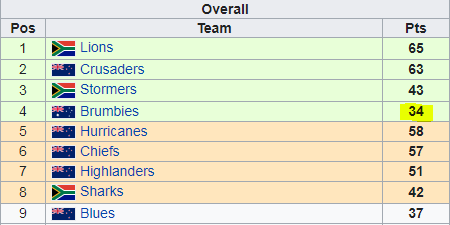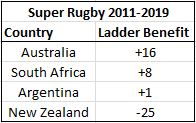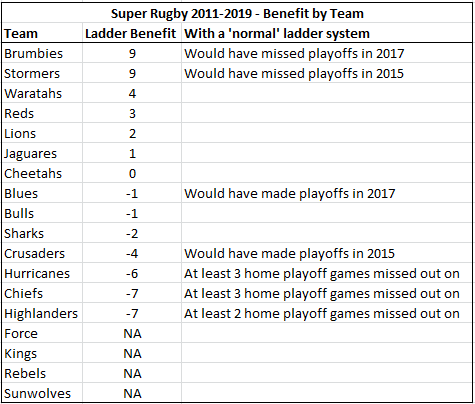New Zealand wants to be the Super Rugby Top Dog – And Rightly So
1By James Rodbourn
If we are to believe recent media reports, New Zealand rugby has come in hot to discussions with its fellow SANZAAR partners around the future of Super Rugby, attempting to steamroll their way through negotiations like an angry Ngani Laumape with ball in hand. Depending on which of these reports you believe, they may have suggested Australian Rugby have as few as 2 teams in a rumoured Trans-Tasman Super Rugby competition for 2021 onwards.
To many, this comes across as smug, selfish, even bullying behaviour. SANZAAR/ANZAC/whatever arrangement we end up with is supposed to be a partnership after all. That’s all well and good, but a combination of COVID and other circumstances means that New Zealand Rugby has a chance to properly dictate its own Super Rugby future for the first time since 1996 – an opportunity that would be squandered if it were to result in an arrangement that repeats the same old mistakes: too many average teams, dilution of talent, too many games and minimal fan interest due to lopsided results. This would be an especially poor outcome given Super Rugby Aotearoa is currently riding a wave of entertaining rugby week after week and for some fans, perhaps sparking a hint of nostalgia for the cracking Super Rugby games of 10+ years ago.
New Zealand Rugby has already been a team player and conceded a lot in previous Super Rugby negotiations. Despite New Zealand teams being unquestionably the most successful in Super Rugby, Australia and South Africa ended up with the same number of teams (5) for the majority of last decade. But much worse than that, in the interests of having those 3 countries as equally represented in the playoffs as possible, from 2011 onwards especially NZR agreed to some of the most nonsensical playoff systems in professional sports, to the detriment of their own teams.
There were multiple issues with these various formats, but the crux of the inequity was the guaranteeing of higher playoff spots to Australian and South African teams regardless of their actual performance. By 2017 (and already with severely haemorrhaging public interest), this format was truly exposed when the Brumbies (as the ‘top performing’ Australian team) were given 4th spot and a home playoff game on the final competition ladder despite finishing with the 9th most competition points. All five New Zealand teams performed better than the Brumbies that year, including the Blues, who would have made the playoffs if standings were decided on competition points alone. Note where the Stormers landed relative to their competition points also:
WTF?
From 2011 to 2019, the table below shows that Australian teams in particular have greatly benefitted from these more egalitarian systems. Their teams finished a total of 16 ladder positions higher than if the ladder was decided solely on competition points earned. Conversely, New Zealand teams have been severely negatively affected, finishing a whopping 25 ladder positions lower than a merit-based system.
This of course had numerous flow-on effects for New Zealand teams, including lost revenue from hosting multiple playoff games, playoff games screening at less convenient viewing times, waning fan interest in a muddled and unfair system, and the greatly reduced chance of an all-New Zealand final. Can we really blame New Zealand Rugby for coming to the table determined to seek the most beneficial and sustainable model for any future competition?
We would all like to see a return to the heyday of the great Brumbies teams of the turn of the century, or the Reds and Waratahs teams from 2011 and 2014. Of course, there is more to a competition than just on-field results, and revenue and intra-SANZAAR harmony for the greater good of the game will of course be on the mind of New Zealand Rugby during these discussions. But they will be equally as mindful of avoiding having to prop up another lemon for 20 more years, and they can and should have the loudest voice at the table.
Follow James on Twitter
P.S. Here is the above table broken down by team if anyone is interested:




[…] only expected that New Zealanders’ love and support would only make the athletes and their managers more motivate…. NZ is undeniably one of the top countries ever to play Rugby League, but where does the kiwi […]